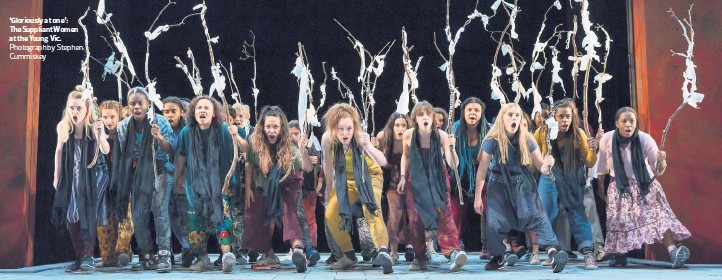 |
| Belgians have no idea about the real thing....sigh... |
His purpose was to give the oarsmen the beat for their rowing rhythm. The instrument he played was the ancient two-pipe flute called the aulos.
 |
| The Poseidonia aulos |
When Olympias was on trials a tannoy system was implemented to allow direct and simultaneous communication with the whole crew. Getting 170 men to work in unison is no easy matter..
On each trial usually took some days before the oarsmen rowed properly in unison and once this basic standard was reached the necessity for communication was lessened. One must remember that the ancient crews grew up rowing and had the technique instilled in them. They needed occasional prompting not an ear-lashing to get them to work together and at the right rhythm.
 |
| 'We're riding along on the crest of a wave...' |
 |
| 'Suppliant my arse - give them five minutes and they'll be telling you to tidy the house and change your underpants more often..' |
Aeschylus, the renowned Athenian playwright, was not one of your modern Ivory Tower scribblers. In ancient Athens the Middle Class put their hoplons on the line for the city in order to maintain both their state and their status. Aeschylus definitely fought at Marathon and he may have fought at Salamis too - he would certainly have been present there. His brother lost a hand in the fighting. Listening to the aulos brought back to life by Barnaby Brown and others is to listen to the sound created by the auletes in the ships at Salamis. Not only that, but the all the galleys plying the seas of the Athenian Empire, the Black Sea and all over the Mediterranean. 170 sweaty, toiling men under the canopy of a trieres would share the drone and reedy wail of the aulos. They must have keenly eyed the auletes at the start of the voyage and hoped the new face knew his stuff - chaos and crumpled eardrums could otherwise ensue.
 |
| 'Yes, Sire, I can confirm the Greeks are playing the theme from 'Das Boot', just to wind you up...' |
VID 1 - Barnaby Brown does the technical stuff...
VID 2 - Barnaby Brown at the breathtaking temples of Pæstum.
VID 3 - If you survived the first two, this is a reward. Not such an accurate copy but a great musician playing a nice melody. Anton Platonov gives it gas. See his other aulos videos too.
There is also the triple pipe from Sardinia, still played today, but I am subjected to this regularly on CD by my girlfriend. It is not 50% better than the aulos. I would rather face the Persians than a bunch of pipe-wielding Sardinian shepherds!

No comments:
Post a Comment